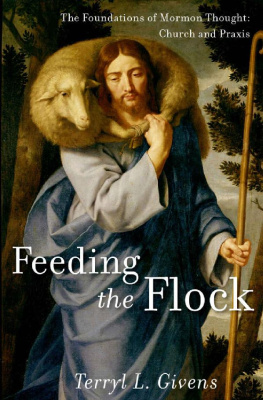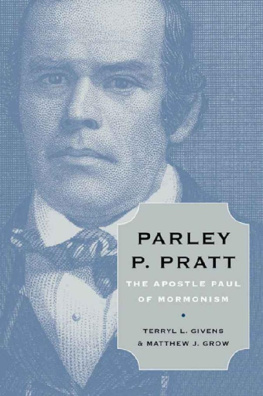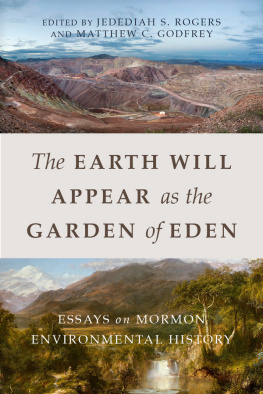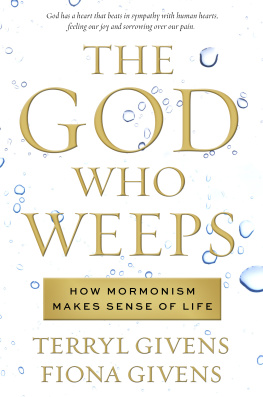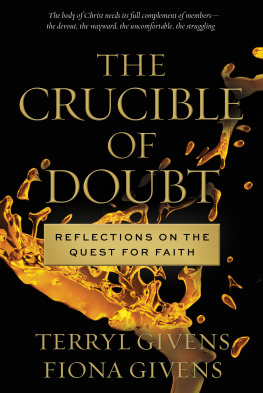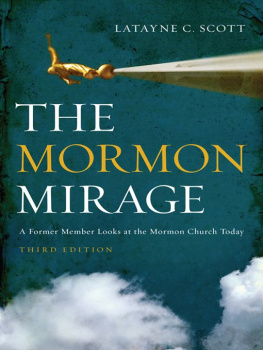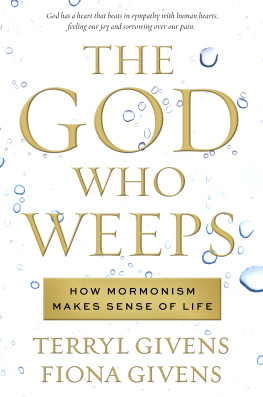FEEDING THE FLOCK

Feeding the Flock
THE FOUNDATIONS OF MORMON THOUGHT: CHURCH AND PRAXIS
Terryl L. Givens



Oxford University Press is a department of the University of Oxford. It furthers
the Universitys objective of excellence in research, scholarship, and education
by publishing worldwide. Oxford is a registered trade mark of Oxford University
Press in the UK and certain other countries.
Published in the United States of America by Oxford University Press
198 Madison Avenue, New York, NY 10016, United States of America.
Oxford University Press 2017
All rights reserved. No part of this publication may be reproduced, stored in
a retrieval system, or transmitted, in any form or by any means, without the
prior permission in writing of Oxford University Press, or as expressly permitted
by law, by license, or under terms agreed with the appropriate reproduction
rights organization. Inquiries concerning reproduction outside the scope of the
above should be sent to the Rights Department, Oxford University Press, at the
address above.
You must not circulate this work in any other form
and you must impose this same condition on any acquirer.
Library of Congress Cataloging-in-Publication Data
Names: Givens, Terryl, author.
Title: Feeding the flock : the foundations of Mormon thought : church and
praxis / Terryl L. Givens.
Description: Oxford, New York : Oxford University Press, [2017] |
Includes bibliographical references and index.
Identifiers: LCCN 2016042506 (print) | LCCN 2016043760 (ebook) |
ISBN 9780199794935 (cloth) | ISBN 9780199795000 (updf) |
ISBN 9780190657864 (oso) | ISBN 9780190657857 (epub)
Subjects: LCSH: SacramentsChurch of Jesus Christ of Latter-day Saints. |
SacramentsMormon Church. | Church of Jesus Christ of Latter-day
SaintsDoctrines. | Mormon ChurchDoctrines.
Classification: LCC BX8655 .G58 2017 (print) | LCC BX8655 (ebook) |
DDC 289.3/32dc23
LC record available at https://lccn.loc.gov/2016042506
To Philip and Deborah
How good and glorious it has seemed unto me, to find pure and holy friends, who are faithful, just, and true.
JOSEPH SMITH

Contents

IN VOLUME 1 of my history of Mormon thought I chose Wrestling the Angel to designate the metaphorical struggle to articulate in human terms the key ideas pertaining to the nature of God, the human, and their relationship. (I use Mormon as a simpler and interchangeable term for the Church of Jesus Christ of Latter-day Saints, the formal designation for the faith tradition.) In this, the second volume, I chose Feeding the Flock, as it is the metaphorical expression the resurrected Savior used to refer to the work of the ministry, executed in and through his church by his delegated servants.or pass over lightly as being less central to the study of ecclesiology as historically understood.
The same caveats apply to this volume as they did with the first. I make no claims to either a comprehensive or authoritative presentation and have selected for treatment those aspects of Mormon ecclesiology that strike me as most useful in answering the fundamental question of ecclesiology: what did Joseph Smith and his successors understand the purpose of the church to be, and how did the resultant structure and forms of practice evolve over time?
Mormon ecclesiology in my experience has proven more complicated to arrange topically than theology, because of the complex interconnectedness of all the parts: sacraments are inseparable from questions of authority; authority has both institutional and soteriological roles; in addition, authority is both evidenced in and a precondition for certain spiritual gifts; some spiritual gifts are hard to distinguish from sacraments (healing, for example); some sacraments are central to temple theology but some are part of the order of worship (the Lords Supper), and some are performed independently. A patriarch holds a priesthood office, but his work is to pronounce blessings, which are a form of sacrament. Seventies formed part of the church hierarchy, became a ward-level priesthood office, then reverted to part of the leadership structure, and so forth. Therefore, liberal use of the index may be the best way to ensure that one has access to all the angles from which a given topic may be discussed in this volume. For readability, most spelling from original sources has been modernized.

MANY OF THE questions this volume tackles were raised in the Mormon Scholars Foundation Summer Seminar of 2015, Organizing the Kingdom: Priesthood, Church Government, and the Forms of LDS Worship. I thank the donors of the MSF for their support and the participants for their contributions. Several scholars have reviewed various drafts of this work and made helpful criticisms, especially Matthew Bowman, Benjamin Huff, Michael MacKay, Gerald Smith, and Joseph Spencer. Jed Woodworths critiques have been crucial, and Jonathan Stapleys work on priesthood has been invaluable. A work of this nature would be much more difficult if not for the world-class editing of the Joseph Smith Papers editors, making available to this generation an unprecedented bonanza of readily accessible source materials, and I am grateful to the entire team of editors for their contributions to the field of Mormon Studies. I also express appreciation to the University of Richmond Faculty Research Committee and the Neal A. Maxwell Institute for Religious Scholarship for generous support in bringing this project to fruition. Finally, a thank you to my colleagues at Harris Manchester College, Oxford University, where I completed the manuscript as a Visiting Fellow in 2016.
FEEDING THE FLOCK

God, being perfectly and supremely joyful, wished the same condition to be shared by the human race and made provisionat his unfathomable personal costfor this to be so. Embodiment for billions of spirits, the travails of mortality, and the educative experiences of pain and pleasure, dissolution, and deathall are orchestrated to effect the eventual incorporation of these numberless multitudes into a celestial family. Full communion with God, partaking of the divine nature by immersion in an eternal web of loving relationships, is the purpose and project of human existence. A mortal sphere exposing humans to the formative crucible of experiences and choices defines as much as refines our nature and propels the process onward. The crowning culmination is achieved when sanctified individuals are assimilated into eternal union with each other and with heavenly parents, in a divine family. Such ends are achieved through belief in God and his providence, and faith in an atoning sacrifice of God the Son that makes repentance, sanctification, and resurrection possible. This is the fundamental framework of Mormon thought.

